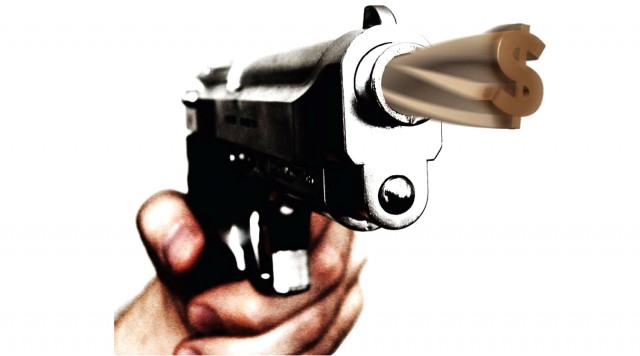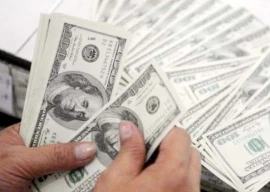
We had one of the biggest internal displacements in the history of world with nearly 2.3 million migrating to other areas, being taken care of and then finally being repatriated and rehabilitated to their homes.
The country received around $0.8 billion for an operation that cost Pakistan approximately $10 billion. We are talking about the Malakand operation that was staged during the summer of 2009.
It is easy to blame the government for not being able to control budgetary deficits, but the government cannot be blamed for costs that cannot be envisaged in a budget.
No one should expect policy makers to make budgetary estimates that would take dealing with 2.3 million internally displaced people into account.
The International Monetary Fund’s Poverty Reduction Strategy Paper identifies the “government spending in excess of revenue” to be the country’s main problem. The report talks about the recent political, economic and social events, both domestic and international, which have put an adverse impact on Pakistan. To emphasize the impact on the economy, the role in war on terror finds its place in the very beginning of the report.
There are other problems that can easily be blamed for Pakistan’s macroeconomic instability including domestic law and order, an unprecedented global increase in prices of oil, food and other essential commodities, instability in international financial markets.
But the fact remains that the most important factor is Pakistan bearing the direct and indirect costs being the frontline state in the first worlds War on Terror.
As a result of these issues, Pakistan is currently facing major challenges including growing fiscal and current account deficits; rising inflation; growth deterioration; and depleting foreign exchange reserves.
The IMF has highlighted the economic cost of the war by looking at the direct cost of resource movement and indirect cost of loss of exports, foreign investment, privatization, industrial output, and tax collection.
The findings are staggering and should give enough thought to detractors of our involvement in a war of our own existence. They calculate the economic costs of the war to be $30 billion, using the actual foreign exchange rates prevalent in those years.
The report goes on to say that Pakistan’s role in the war on terror severely dented the development work in the country. “Pakistan has sustained immense socioeconomic costs of being a partner in the international counterterrorism campaign,” the report said.
Since the start of the anti-terrorism campaign, an overall sense of uncertainty has contributed to the capital flight, as well as, slowed down domestic economic activity making foreign investors jittery despite all these challenges Pakistan has not defaulted on any of its obligations and successfully paid back the entire amount of a Sovereign Euro Bond in January 2010.
At the same time it is also important to highlight the importance of relief that we can get from International Community. If the likes of IMF acknowledge the role we are playing and also suffering because of it economy wise, then why can’t we lobby effectively and get ourselves some relief?
We should try to get our bilateral debt written off. It is pertinent to note that during the 9 months of July 2009 to March 2010, Pakistan serviced $1.72 billion of foreign debt (according to SBP figures) or approximately PKR 150 billion.
Our total foreign debt is $54.235 billion as of March 2010. Out of that approximately $14.1 billion is with the Paris Club in which there are 18 nations who rescheduled our debt in December 2001. These countries include the US, UK, Canada, Japan, Korea, Netherlands, Norway, France and Germany.
We should demand from the world that we need this relief as it will allow us to plug the holes in our budget and also allow for spending more on development which is a foremost strategy to shun extremism.
For example, if the interest and debt service cost over the next 3 years from these loans of around $18 billion come to Rs400 billion, then the government can freeze its expenditures by the same amount. Imagine the trickledown effect on our economy.
We will be saving servicing cost and also reducing our expenditure. It will be a saving of Rs800 billion over three years of time. With this saving, we can reduce our fiscal deficit and at the same time increase our development programs. All it requires is for all of parties in the parliament to join hands and stand together.
The PPP will not be in power for ever but Pakistan has to be there forever and that we can only achieve by setting aside our petty differences and working towards a consensus that can actually help Pakistan.
Published in The Express Tribune, July 12th, 2010.
1672385156-0/Andrew-Tate-(1)1672385156-0-405x300.webp)
















COMMENTS (11)
Comments are moderated and generally will be posted if they are on-topic and not abusive.
For more information, please see our Comments FAQ